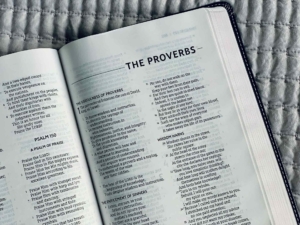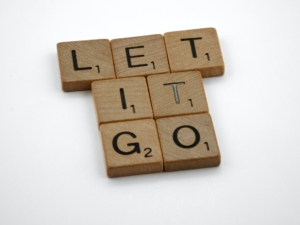Dealing with Codependency in Friendships
The book of Proverbs, which is one of the wisdom books in the Bible, has this to say about friendship:
One who has unreliable friends soon comes to ruin, but there is a friend who sticks closer than a brother – Proverbs 18:24, NIV
This book, and the rest of the Bible, has a lot more to say about friends and friendship, but there’s a sense in which this verse is a great summary of it all. Some friends will lead to ruin, and “ruin” may look like several different things, but there are other friends who are not only so reliable that they can be counted on more than your own relatives, but they also cause you to prosper.
 There’s a lot that’s been written about friendship. One of the best reflections on friendship was produced by C. S. Lewis, and in The Four Loves, he has these two gems: “Friendship …is born at the moment when one man says to another ‘What! You too? I thought that no one but myself…’”. He also wrote: “Friendship is unnecessary, like philosophy, like art…. It has no survival value; rather it is one of those things which give value to survival.”
There’s a lot that’s been written about friendship. One of the best reflections on friendship was produced by C. S. Lewis, and in The Four Loves, he has these two gems: “Friendship …is born at the moment when one man says to another ‘What! You too? I thought that no one but myself…’”. He also wrote: “Friendship is unnecessary, like philosophy, like art…. It has no survival value; rather it is one of those things which give value to survival.”
It is possible to survive without friendships, but surely our lives are poorer for it. Friendships, as Lewis put it, give value to survival. They provide us with human connection, joy, and support. There are different kinds of friendships, differing in proximity and depth, but they also differ in how healthy they are. Some friendships are afflicted with unhealthy patterns such as codependency.
Friendships and Codependent Behavior
Codependency is an unhealthy dynamic that can attach itself to different kinds of relationships. This includes the parent-child relationship, romantic relationships, between siblings, coworkers, and friendships. Codependency involves a pattern of relying excessively on another person; this reliance can be both psychological and emotional, and it goes beyond the healthy interdependence that relationships ought to have.
The idea of codependency is typically associated with addiction. In that context, codependency describes the ways the partner or family members relate to their loved one who’s struggling with substance abuse. The partner or family members are overly involved in their loved one’s life, performing a rescuing function. The dynamic is skewed and unhealthy.
Codependency can also be used as a term to describe friendships and other relationships, especially where there is a significant imbalance of power and responsibility in the relationship. In a given relationship, the codependent dynamic is often rooted in early life experiences, like when a person grows up in a dysfunctional family and their needs are ignored or left unmet. These dynamics can be carried forward into other relationships.
In a friendship, two people may meet, and in one or both of their lives, they may have learned to put the needs of others above their own. There may also be a pattern of seeking acceptance from others and finding validation in how others perceive them. What this often translates into is a friend who has an unhealthy habit of self-sacrifice and neglecting their own well-being.
Identifying Codependency in Friendships
What’s the difference between codependency in friendships, and friendships where there is a healthy self-regard? A good friend is willing to sacrifice themselves on your behalf. After all, Jesus, who wants to call us a friend, died for us, the righteous one dying for ungodly people (Romans 5:6-8). However, unlike Jesus, a codependent friend is unable to say “no”, even when it’s detrimental to their own well-being. In other words, they don’t have healthy boundaries.
 The lack of boundaries is one of the main things that can help you identify a codependent dynamic in a relationship. To address codependence in your friendship, you need to be able to identify it, whether you’re the codependent one, or the one who’s benefitting from this dynamic. Some of the signs to look out for include the following:
The lack of boundaries is one of the main things that can help you identify a codependent dynamic in a relationship. To address codependence in your friendship, you need to be able to identify it, whether you’re the codependent one, or the one who’s benefitting from this dynamic. Some of the signs to look out for include the following:
A lack of boundaries With codependency in friendships, personal boundaries are often blurred or non-existent. These boundaries include having your own opinions, demarcating things that you don’t want to get involved in or do, and being able to say “no” when something goes against your values.
Where there is a lack of boundaries, you can wind up feeling trapped in the relationship, unable to express your own needs or desires.
Excessive caretaking If you are a codependent friend, you’ll often assume the role of a caretaker over your friend. You may feel responsible for the other person’s happiness and well-being. To accomplish this happiness, you may put your friend’s needs above your own, even when it becomes detrimental to your well-being.
For instance, you may loan your friend money when you need it to pay your mortgage or car loan, putting your own credit and living situation in danger.
Resentment and controlling behavior Excessive caretaking can be a sign of codependency, and with that, there is also often resentment that takes root. When you don’t take care of your own needs, you wear yourself thin. The codependent person may be resentful toward the other person, and because they feel responsible for them, they often become controlling.
Fear of abandonment A person with codependent tendencies will often have an intense fear of being abandoned by others. This may be the result of past experiences. Having such a fear can lead to clingy behavior. They may go to great lengths to keep the friendship, even when it becomes decidedly toxic or unhealthy.
Need for approval Codependency will often leave a person with a strong need for approval and validation from others. A codependent person will often have an underdeveloped sense of self, and they feel important or valuable only insofar as other people around them accord them that value. They are often overly concerned with pleasing others and may feel worthless without their friend’s affirmation.
 This is one of the reasons why a codependent person will stay in an unhealthy relationship, or why they will struggle to say “no” or to give valid criticism about their friend’s behavior – it may mean that their friend won’t give them the approval they crave, so it’s easier to just go with the flow.
This is one of the reasons why a codependent person will stay in an unhealthy relationship, or why they will struggle to say “no” or to give valid criticism about their friend’s behavior – it may mean that their friend won’t give them the approval they crave, so it’s easier to just go with the flow.
Difficulty in decision-making Another sign of a codependent relationship is that a codependent individual might struggle to make decisions independently and rely heavily on their friend’s opinions and guidance.
Dealing with Codependency in Friendships
When it comes to dealing with codependency in a friendship, there are various strategies you can deploy to handle the situation. If you’re codependent, you don’t have to wait for your friends or loved ones to agree with you before you start making changes in your life. You can commit yourself and begin to consciously put in the hard work necessary to change things.
Some things you can do include the following:
Nurturing self-awareness You can begin by nurturing self-awareness about the patterns in your relationships. Pause and reflect on your behavior and motives in the friendship, especially around any self-sacrificial behavior.
Build your self-esteem You can work on building your self-esteem and self-worth from within. Take time to engage in activities that make you feel happy, competent, and confident. Remind yourself what Scripture says about you and why you’re valuable in the Lord’s eyes.
Set healthy boundaries It’s important that you set and communicate clear boundaries with others. Boundaries help to create a balanced relationship where you both feel respected and valued. Know that it’s okay for you to say “no” and to prioritize your own needs. It takes time, but nurture the understanding that taking care of yourself isn’t selfish but necessary for healthy relationships.
Foster independence One way to begin reversing codependency is to encourage yourself to make decisions independently. You can have your own opinions and interests, entirely separate from the things your friend is interested in.
 Talk with your friend You should have open and honest communication with your friend, discussing your feelings and concerns about the dynamics of the relationship. You can both, in your own way, work together toward a healthier, more balanced relationship.
Talk with your friend You should have open and honest communication with your friend, discussing your feelings and concerns about the dynamics of the relationship. You can both, in your own way, work together toward a healthier, more balanced relationship.
Let go In some instances, you need to let go of relationships. If your friend doesn’t want to honor your boundaries and right to say “no”, and if that friendship is causing more harm than good, then it might be time to reconsider its place in your life.
Seek professional help You don’t have to figure out how to do all this by yourself. You can make use of therapy or counseling to overcome codependency. Your counselor can walk with you to unpack and explore the underlying causes of your codependent behavior, and they can also provide you with effective strategies to develop a more secure sense of self and healthier relationships that are built on mutual respect. Contact our office today to learn more.
“Proverbs”, Courtesy of Tim Wildsmith, Unsplash.com, CC0 License; “Talk to the Hand”, Courtesy of Getty Images, Unsplash.com, Unsplash+ License; “Sunset”, Courtesy of Harli Marten, Unsplash.com, CC0 License; “Let It Go”, Courtesy of Brett Jordan, Unsplash.com, CC0 License





